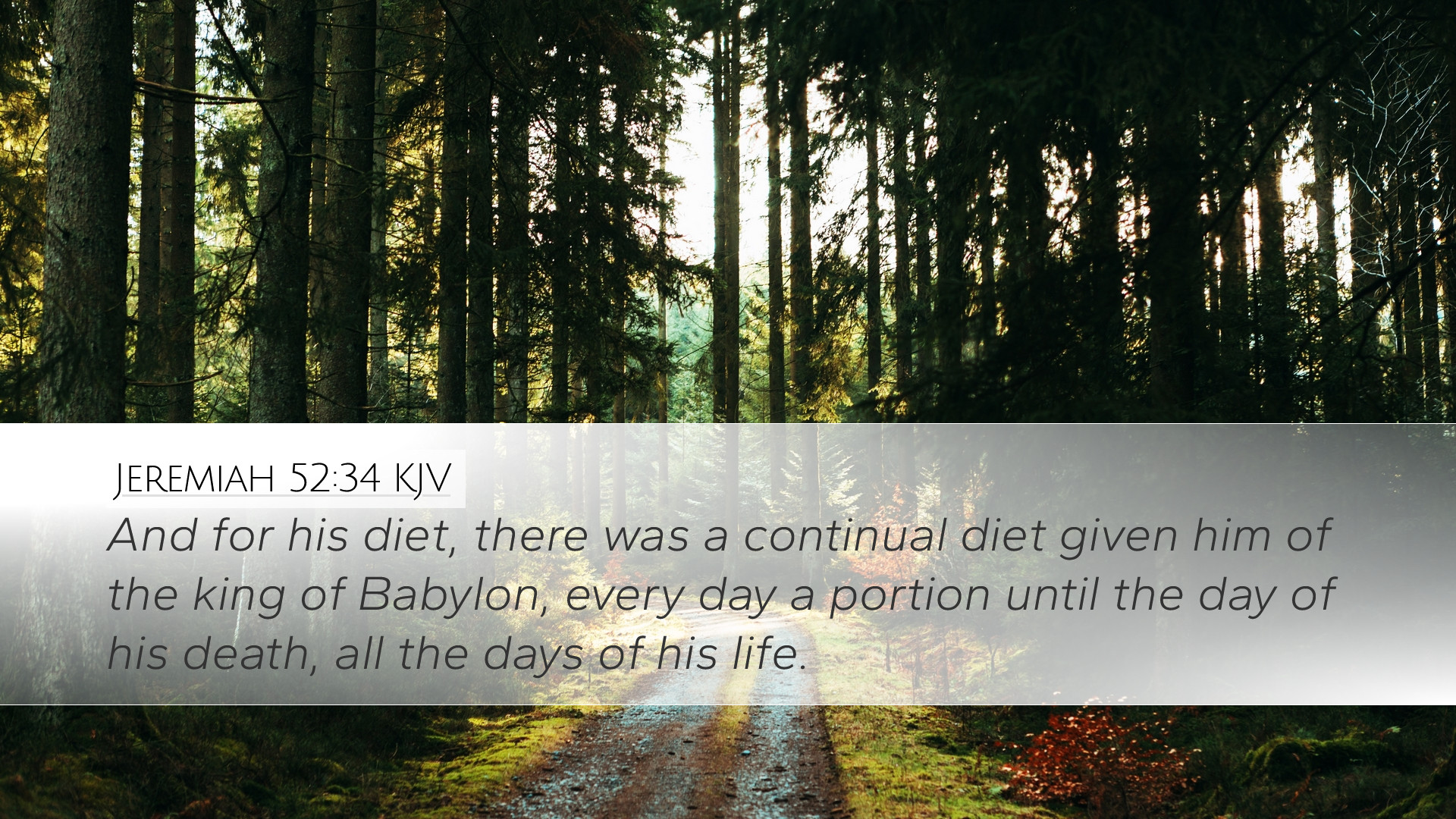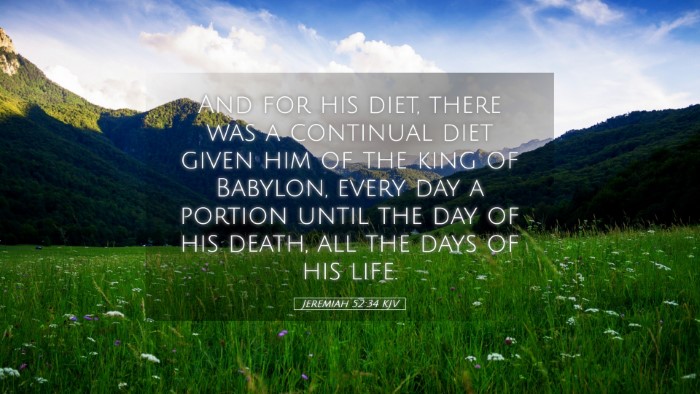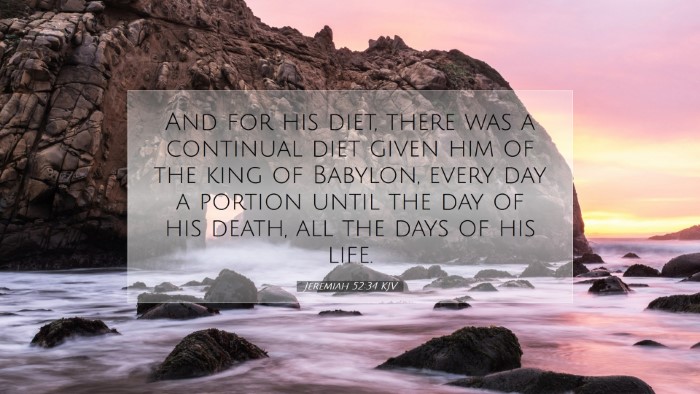Commentary on Jeremiah 52:34
Verse Context: Jeremiah 52:34 states:
“And for his allowance, there was a continual allowance given him of the king, a daily rate for every day, all the days of his life.”
Background Summary
This verse marks the closing of the Book of Jeremiah, a narrative concerning the fall of Jerusalem and the subsequent exile of its people. Jeremiah, the prophet, witnessed the decline of Judah and the coming judgment of God upon it. In this closing statement, the focus shifts to Jehoiachin, the last king of Judah, who was taken captive and then granted a place of honor in Babylon.
Insights from Key Commentators
Matthew Henry's Commentary
Matthew Henry emphasizes the grace shown towards Jehoiachin, who, despite his past failures and captivity, received a daily provision from the king of Babylon. Henry points out that this serves as a testament to God's mercy, showing that even those who have fallen can find favor. He notes:
- Divine Providence: “God's providence is seen in the way the captive king was treated, highlighting that His plans often transcend human understanding.”
- Symbol of Restoration: Jehoiachin's elevated position symbolizes hope for Israel, foretelling a future restoration after exile.
- Mercy Beyond Judgement: The allowance given daily demonstrates God’s mercy, reminding readers that He always has a remnant of grace even in judgment.”
Albert Barnes' Notes on the Bible
Albert Barnes provides a detailed historical context regarding Jehoiachin's captivity. His insights include:
- Historical Context: “Jehoiachin’s twenty-seven years in captivity were marked by both despair and eventual privilege, symbolizing the cyclical nature of oppression and redemption.”
- Provision as Privilege: “The ‘daily allowance’ suggests that rather than being a forgotten king, Jehoiachin was respected and cared for, which is indicative of the changing fortunes of leaders in the ancient world.”
- Spiritual Significance: “This allowance can be seen as a foreshadowing of God's continual provision for His people, even when they stray from His ways.”
Adam Clarke's Commentary
Adam Clarke offers a theological viewpoint, discussing the implications of Jehoiachin's provision in Babylon. Some highlights from his commentary include:
- God's Plan Over Human Failure: “Clarke suggests that despite human disobedience and failure like that of Jehoiachin, God orchestrates events to manifest His grace.”
- Hope in Despair: “The daily allowance is not merely physical sustenance but also represents a glimmer of hope for the exiled nation, indicating that God has not forgotten His covenant people.”
- Lessons for Believers: “Clarke urges believers to find encouragement in moments of despair, as God’s providence assures us of His care even in dire circumstances.”
Theological Reflections
The significance of Jeremiah 52:34 extends beyond the narrative of Jehoiachin's life; it encapsulates God’s overarching theme of grace amidst judgment. It serves as a reminder for leaders and believers alike that:
- Grace is Transformative: Like Jehoiachin, individuals may experience restored dignity and purpose despite past failures.
- God’s Provisions are Generous: The daily allowance signifies a continued relationship between God and His people, where even in captivity, provision is made.
- Restoration is Possible: The story heralds a future restoration of Israel, which is a theme echoed throughout the Scriptures—a promise of hope even in judgment.
Application for Today
For pastors, theologians, and students of the Word, this verse, and its commentaries serve as a rich source of nourishment for the journey of faith:
- Encouragement in Trials: This passage provides comfort that even when one feels defeated, God's providence is at work behind the scenes.
- Hope for Restoration: Modern-day believers can draw from this narrative a deep-rooted hope that no circumstance is beyond the redeeming touch of God.
- Leadership Lessons: For church leaders, Jehoiachin's story encourages humility, reminding them that leadership is not just a position of power but a calling to serve reflected in the grace extended to others.
Conclusion
Jeremiah 52:34 encapsulates a profound moment of transition for the people of Judah. It reflects God’s character as one who provides, nurtures, and ultimately redeems His people, regardless of their circumstances. The commentaries from Henry, Barnes, and Clarke encourage readers to understand this passage not just as an historical account but as a theological beacon pointing toward the hope and grace found in God’s unfailing love. As we reflect upon this verse, may it deepen our understanding of God's providential care, even in the darkest moments of our lives.


